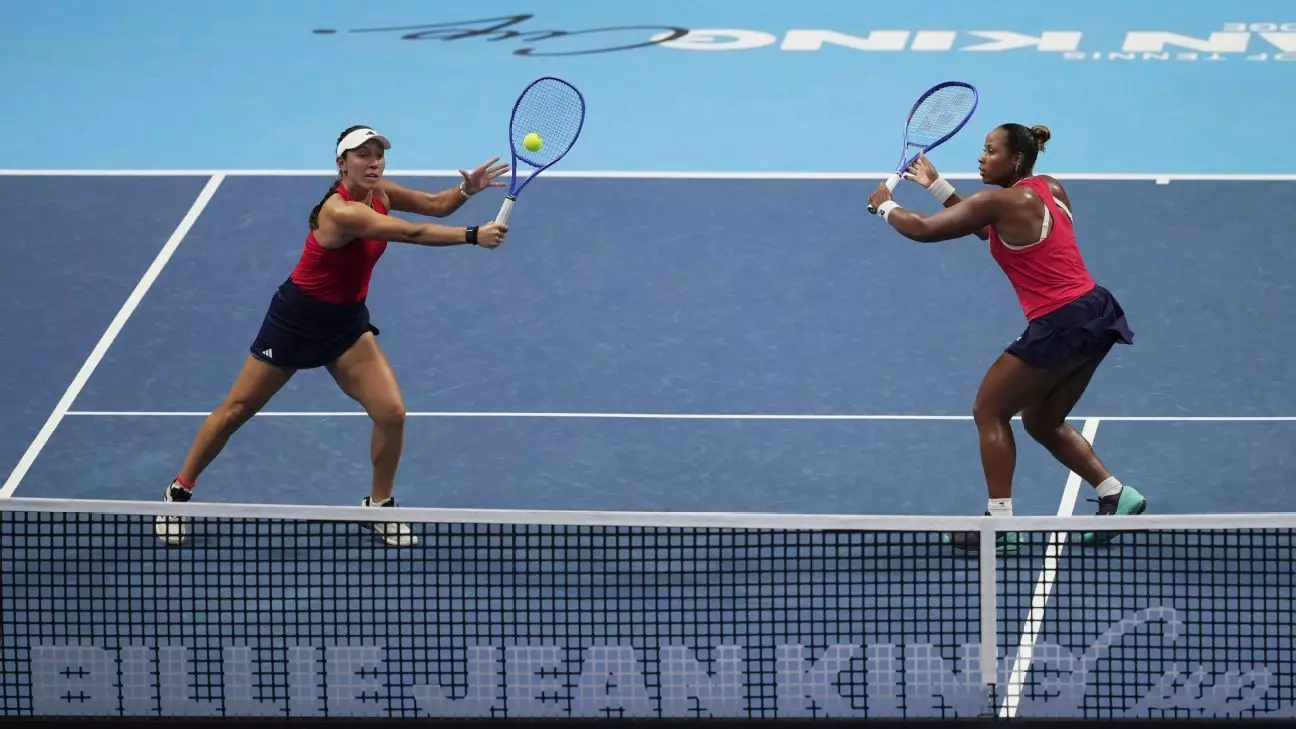The United States women’s tennis team has demonstrated resilience and strategic prowess by reaching the Billie Jean King Cup semifinals for the first time since 2021. This milestone isn’t just about a victory; it signifies a resurgence rooted in dynamic teamwork and individual grit. Jessica Pegula’s tenacity in singles, especially her ability to overcome a prior loss to Elena Rybakina, highlights her growth as a competitor. Her partnership with Taylor Townsend in doubles showcased the importance of experience and chemistry, culminating in a decisive win that sealed the team’s advancement. Their success symbolizes a broader narrative of empowerment — American players not only conquering formidable opponents but also overcoming their own limitations to uplift national pride.
Key Moments That Shifted the Tide
The semifinal match was a rollercoaster, reflecting the unpredictable nature of tennis at its highest level. Emma Navarro’s thrilling comeback against Yulia Putintseva, where she saved two match points, epitomized the mental toughness required to triumph under pressure. The emotional rollercoaster extended to the doubles, where Townsend’s dominance in the opening set laid the groundwork for their victory. Noteworthy too was Rybakina’s victory over Pegula, reaffirming her status as a top-tier player, and illustrating that even the best can be challenged. The narrative of redemption was palpable, especially as Pegula aimed to “redeem” herself after a recent setback—her determination standing as a testament to how resilience can transform setbacks into comebacks. This mindset is integral to American tennis, as they leverage a mix of youth and experience to make unexpected strides in international competitions.
Controversies and Leadership Dynamics
While on-court heroics stole the spotlight, off-court issues also surfaced. Pegula’s comments about Chinese food sparked some controversy, revealing the delicate balance athletes face with public perception and cultural sensitivity. Her subsequent apology demonstrated an awareness of this balance, emphasizing that leadership extends beyond athletic performance into personal integrity. Meanwhile, Townsend’s leadership and towering doubles record added a layer of confidence to the team, showing that seasoned players can inspire younger counterparts. Their partnership exemplifies how success often hinges on collaboration, trust, and the ability to perform under pressure — crucial qualities that American teams are increasingly cultivating.
Implications for Future Tournaments
With a well-earned spot in the semifinals, the U.S. team now faces Britain — a duel that promises intense competition and a test of resilience. Britain’s impressive victories in both singles matches underscore their own rising strength, preparing the Americans for a battle that demands strategic adaptability. Outside their immediate rivalry, the tournament’s structure represents a broader shift in international women’s tennis, with nations like Ukraine and Italy making strong statements. Ukraine’s recent upset over Spain and Italy’s victory over China indicate deepening competition, raising the bar for American teams in future editions. The Billie Jean King Cup has evolved from its former Fed Cup identity into a battleground where emerging talents and seasoned stars collide, reshaping global perceptions of women’s tennis. For the U.S., reclaiming glory isn’t just about adding to their 18 titles—it’s about demonstrating leadership and vision in an increasingly competitive arena.

